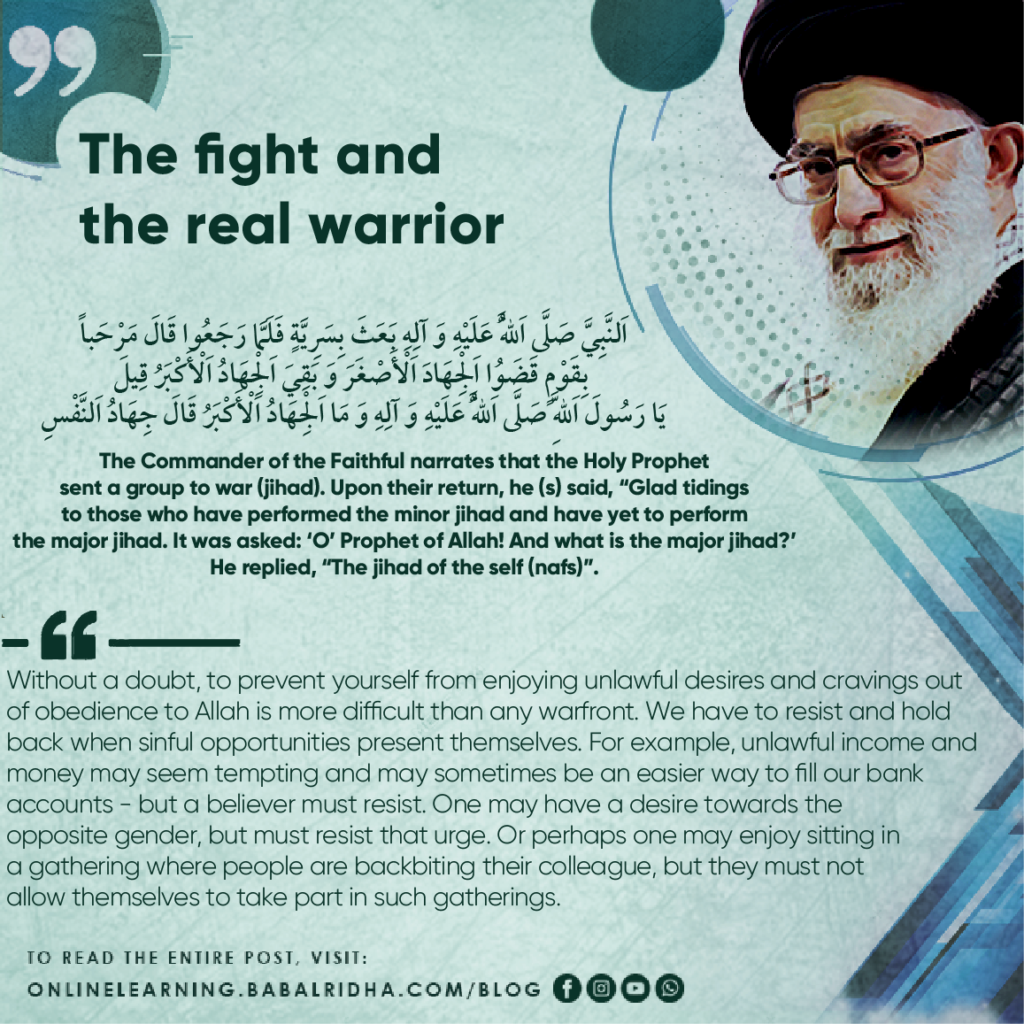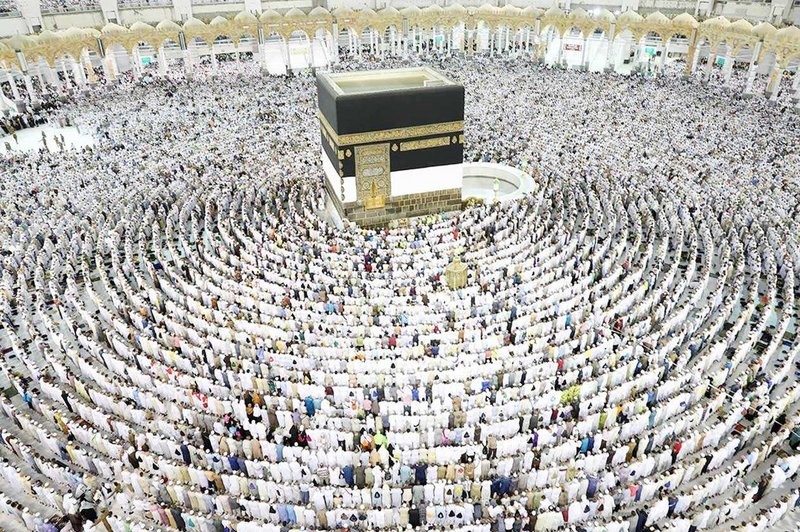The fight and the real warrior

أَنَّ اَلنَّبِيَّ صَلَّى اَللَّهُ عَلَيْهِ وَ آلِهِ بَعَثَ بِسَرِيَّةٍ فَلَمَّا رَجَعُوا قَالَ مَرْحَباً بِقَوْمٍ قَضَوُا اَلْجِهَادَ اَلْأَصْغَرَ وَ بَقِيَ اَلْجِهَادُ اَلْأَكْبَرُ قِيلَ يَا رَسُولَ اَللَّهِ صَلَّى اَللَّهُ عَلَيْهِ وَ آلِهِ وَ مَا اَلْجِهَادُ اَلْأَكْبَرُ قَالَ جِهَادُ اَلنَّفْسِ.
The Commander of the Faithful narrates that the Holy Prophet sent a group to war (jihad). Upon their return, he (s) said, “Glad tidings to those who have performed the minor jihad and have yet to perform the major jihad. It was asked: ‘O’ Prophet of Allah! And what is the major jihad?’ He replied, “The jihad of the self (nafs)”.
The Prophet sent a group of Muslims to the frontlines. He himself was not involved in this particular war so when the Muslims returned, he greeted them. The Muslims returned with spoils of war, their heads held high after a great victory. Interestingly, instead of giving them a long welcoming speech praising their efforts and victory, the Prophet instead informed them of a greater struggle they had yet to engage in. These individuals had just put their lives on the line, they struggled greatly, and they collected war booty, not for themselves, but to add it to the public treasury of the Islamic government. Essentially, they had done a great service to the Muslim nation. Despite the immense struggling and toiling in the way of Allah, the Prophet greeted them by informing them that their struggle, however great and valuable as it was, yet it was a smaller in comparison.
So, what is the greater struggle then? The greater struggle is the struggle with one’s own self. It is a struggle wherein one must control one’s whims and desires and keep themselves in check at all times. Of course, the minor struggle, i.e. war against the enemies of Islam, is a part of the major struggle and has elements of it within it. For example, one must leave the comfort of his house and family and fight the enemy for an extended period of time entirely for the sake of Allah. However, it is possible for a person to participate in a battle and yet not be able to fight against their own self.
Without a doubt, to prevent yourself from enjoying unlawful desires and cravings out of obedience to Allah is more difficult than any warfront. One must resist and hold back when sinful opportunities present themselves. For example, unlawful income and money may seem tempting and may sometimes be an easier way to fill our bank accounts – but a believer must resist. One may have a desire towards the opposite gender, but must resist that urge. Or perhaps one may enjoy sitting in a gathering where people are backbiting their colleague, but they must not allow themselves to take part in such gatherings. Perhaps it is time for prayer, and they are with their friends and really do not want to leave that enjoyable and relaxing setting, but they must get up and pray on time. It is in these types of situations where an individual’s true strength and power makes itself apparent.
An example of someone who was truly a strong warrior on the battlefield of the greater jihad is Prophet Yusuf. Zulaykha was the beautiful wife of the king of Egypt. Zulaykha locked herself together with him in her room, by locking all seven doors that would lead out, and invited him to come forward and engage in a major sin. Instead of seeing this scene as an opportunity to be with an attractive woman of power, he replied saying, “I seek refuge in Allah,” and escaped from her trap. This is a perfect example of standing up against our carnal desires and submitting completely to the will of Allah, regardless of how decorated, attractive and accessible a sin may be. This struggle is one that we must engage in, from the moment we wake up until we return to our slumber at night. There is never a moment where we can let our guard down. It is a full-time struggle. This is where the difference between the minor and major jihad becomes apparent. The smaller jihad has an end, whereas the greater jihad does not.
This narration is famous, and we have heard it multiple times. But have we made a serious decision to act upon it? The struggle against oneself is a continuous battle of self-vigilance and self-control in the face of sins and disobedience to Allah. Without a strong footing on this battlefield, every other arena will be difficult. However, when one is able to control their own whims and desires, they will not give in to any enemy and will find themselves victorious on every battlefield. One who only fears Allah and is not a servant of their nafs will not worry about the repercussions of obeying Allah. For example, sometimes we may not perform our responsibilities out of fear of being judged or outcasted. This happens at the workplace, school, or even at the socio-political level. The ability to remain steadfast on the path of truth, the path of Allah, requires one to first be victorious over his own self.



